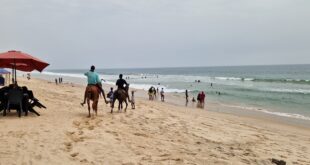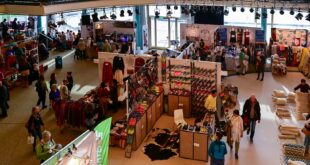Nigerians will vote on Saturday (25 February) for a new president and members of its national assembly. It’s the country’s 7th general election since the restoration of democracy in 1999.
The four leading candidates for the top job are Asiwaju Bola Ahmed Tinubu of the ruling All Progressives Congress (APC), Atiku Abubakar, a former vice president, who is running on the platform of the main opposition Peoples Democratic Party (PDP), Peter Obi of the Labour Party and Rabiu Musa Kwankwaso of the New Nigeria Peoples Party (NNPP).
Whoever emerges winner will succeed incumbent President Muhammadu Buhari, who is completing his second and last term in office. An elected president can only serve for a maximum of two 4-year terms.
Chance for a new beginning?
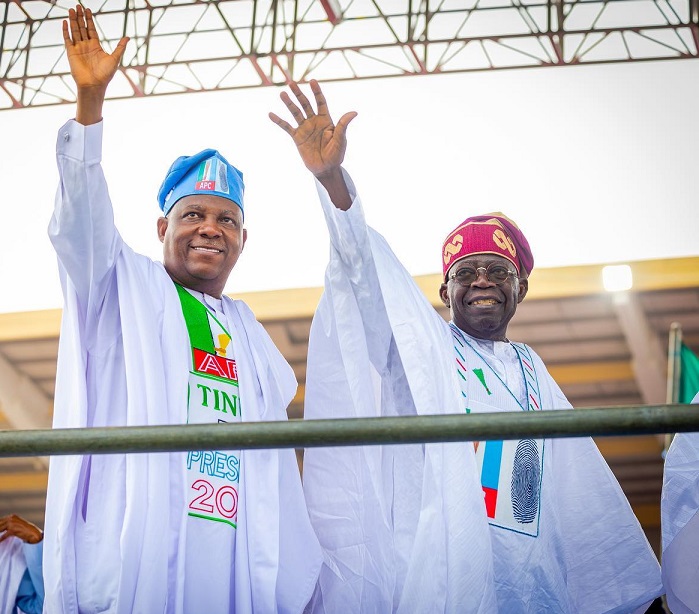
Nigeria has never been in such a desolate state in more than five decades. The economy is in a doldrum with unemployment at an all-time high, there is pervasive insecurity across the land and the country’s physical and and social infrastructures are in a bad state.
Nigerians have never been more dissatisfied with their government and are therefore looking for a new direction. The 2023 election therefore has been described as the most important since the return of democracy in 1999.
The candidates
Only four of the 18 presidential candidates have realistic chances of winning the election. And they are all members of the political class that have run Nigeria since 1999.
Tinubu, a Muslim Yoruba who will be 71 on 29 March, was governor of Lagos State for eight years, Abubakar was vice president from 1999-2007 and Obi and Kwankwaso also governed the south-eastern state of Anambra and the north-western state of Kano respectively for eight years.
Peter Obi (61), who left the PDP for Labour Party in April last year when it became obvious to him that he wouldn’t be able to clinch its presidential ticket, has energised Nigerian politics having largely succeeded in portraying himself as different from the establishment. Millions of Nigerians, especially the youth, have warmed up to the Labour Party candidate and see in him hope for a fresh start.
Tinubu, whose record of achievements in Lagos as governor is held up by his supporters as qualifying him for the presidency, is also a leading contender because his party has the most national spread of electoral support in the country. The APC controls 22 out of Nigeria’s 36 states and the party also holds the majority of seats in both chambers of the national assembly – the Senate and the Federal House of Representatives.
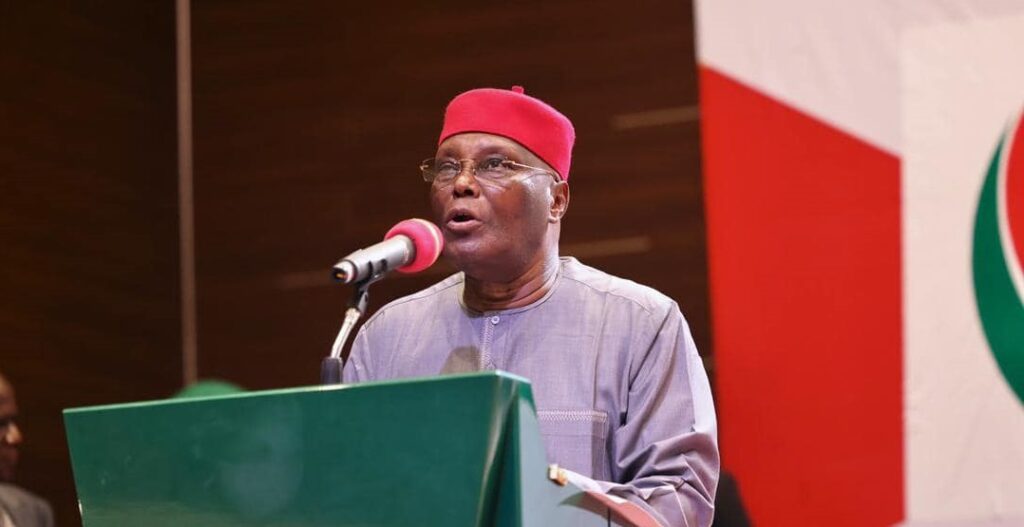
—–
Tinubu’s critics say he’s old and physically and mentally frail and therefore not fit for the strenuous job of governing Africa’s most populous country. Moreover, the fact that his running mate, Kashim Shettima, is also a Muslim has not gone down well with Nigeria’s Christian community. In a nation of ’50-50′ Christian-Muslim population parity, Tinubu choosing a Muslim as his running mate is seen as insensitive to the feeling of the country’s Christians and goes against the tradition of mixed-faith presidential tickets.
Atiku Abubakar (76), who is running for president at a general election for the 3rd time since 1999, is being sold by his party, the PDP, as an astute hand with vast experience in the private sector as well as in government who is most suited to revive the fortunes of the country.
His critics however say Abubakar is a corrupt politician of the old order who has nothing new to offer the country. Moreover, many also consider it unfair that Buhari should be succeeded by Abubakar as both are Muslim northerners of Fulani ethnicity in a country where power is supposed to rotate between the North and the South.
The PDP, which governed the country from 1999 to 2015 when it lost to the APC, is also generally seen as corrupt and is considered to share responsibility for the present parlous state of the nation.
An underdog of the 2023 presidential race, Kwankwaso of the NNPP is generally seen as a northern sectional politician whose base of support is in Kano, one of Nigeria’s 36 states. Analysts believe that he’s only introducing himself to the national voters at this election to prepare him for a serious candidacy in the future.
Nation of complex politics
Given that Nigerians are generally dissatisfied with the state of things, the ruling APC is supposed to be an easy prey at the polls. However, Nigerian politics is complex and Tinubu, the party’s candidate, is generally not held responsible for the failure of his party in government. He himself has always pointed to his limited influence on the Buhari administration.
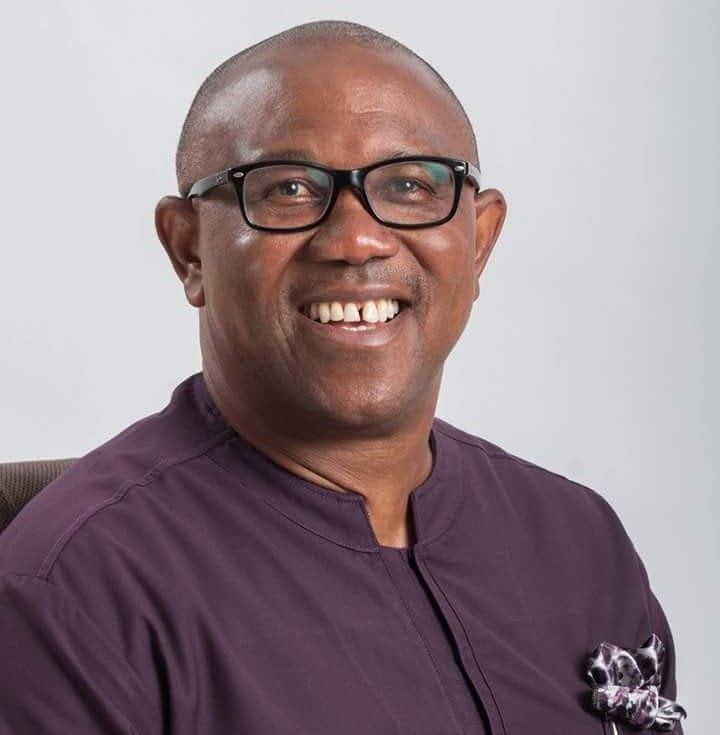
Moreover, elections in Nigeria are influenced by the so-called political bigwigs, regionally powerful politicians who can sway voters in their bases. Since the APC candidate is actively supported by his party’s 22 governors who can mobilise support for him with the instruments of state apparatus in addition to enjoying the backing of many influential politicians across the country, including some PDP governors, Tinubu is clearly the top runner.
The PDP is suffering from internal conflict due to the candidacy of Abubakar, who is a Muslim northerner seeking to succeed another Muslim northerner, a situation that has not gone down well with some powerful members of the party in the South.
In fact, the activities of some of these disaffected members, led by Governor Nyesom Wike of Rivers State, has undermined the PDP’s support base in about five states. Moreover, Peter Obi, who is Igbo, is expected to win resoundingly in the five Igbo south-eastern states, which the PDP has won consistently since 1999.
With the foregoing analysis, Abubakar can only expect most of his votes from the Muslim North, where the APC is also very strong.
Some observers say the Muslim Northern elite may mobilise across party lines to have the PDP candidate elected so that power can remain in the region. The numbers however don’t back the efficacy of such a strategy as Buhari won the majority of votes in the Muslim North thrice but could not clinch the presidency because he performed poorly in the rest of the country. It was not until he formed an alliance with Tinubu that led to the formation of the APC, which delivered him the presidency at the polls in 2015.
Can the ‘hype’ translate to victory?
Obi, who has taken the nation’s political scene by storm this campaign season, is expected to do well across the South but most especially in his native south-eastern region. He should also win a lot of votes among the Christians in the North who see in him hope for an end to their travail. Northern Christians have borne a lot of suffering as a result of Fulani militia attacks since 2015 with the Buhari-led government seen as not especially keen to defend the victims.
Obi is also very popular among youths who constitute about a third of the electorate but who don’t form a voting bloc since they are also susceptible to divisive issues such as ethnicity and religion, potent factors in Nigerian electoral politics.
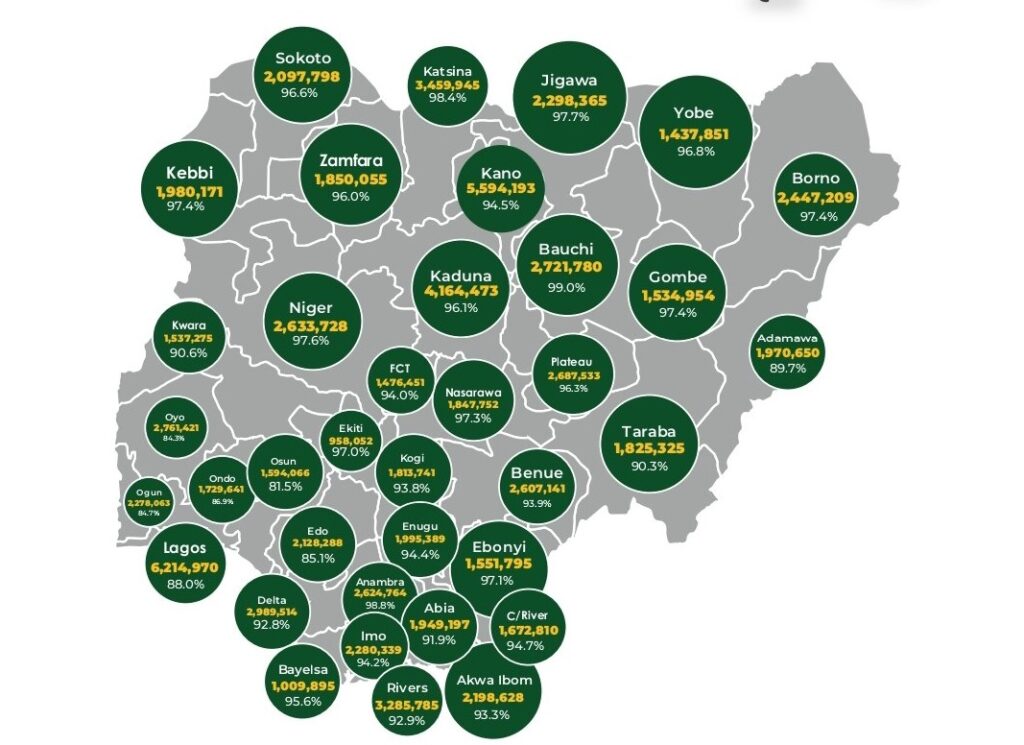
Most opinion polls say the Labour candidate is the favourite of the majority of Nigerian voters. But these polls have been dismissed by his opponents as unserious, questioning the methodologies employed in conducting them.
Independent observers also question the polls given the history of Nigerian electoral politics and consider an Obi’s victory unlikely. They believe that a new comer like Obi without the backing of regional political bigwigs does not stand a chance to win the presidency. His Labour Party does not have a single state under its gubernatorial control.
Peter Obi is a new phenomenon in Nigerian politics though and nobody can say for sure how his popularity will be reflected at the polls.
Tension awaits
Africa’s most populous nation of more than 200 million people will have to wait in trepidation after Saturday’s vote until the Independent National Electoral Commission or INEC announces the winner sometimes next week.
No election in Nigerian history has been difficult to call like the 2023 presidential poll, which may lead to a runoff if none of the contestants wins outrightly at the first ballot.
Femi Awoniyi
READ ALSO Southwest Diaspora Group Backs Asiwaju Bola Tinubu
 THE AFRICAN COURIER. Reporting Africa and its Diaspora! The African Courier is an international magazine published in Germany to report on Africa and the Diaspora African experience. The first issue of the bimonthly magazine appeared on the newsstands on 15 February 1998. The African Courier is a communication forum for European-African political, economic and cultural exchanges, and a voice for Africa in Europe.
THE AFRICAN COURIER. Reporting Africa and its Diaspora! The African Courier is an international magazine published in Germany to report on Africa and the Diaspora African experience. The first issue of the bimonthly magazine appeared on the newsstands on 15 February 1998. The African Courier is a communication forum for European-African political, economic and cultural exchanges, and a voice for Africa in Europe.


















